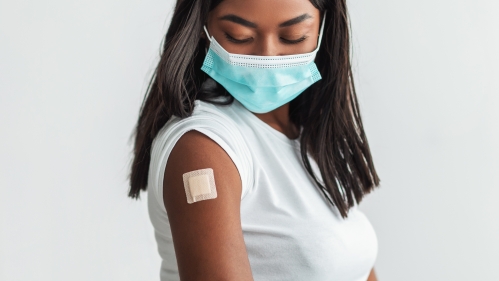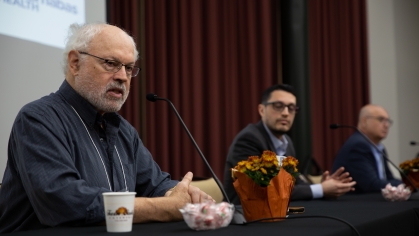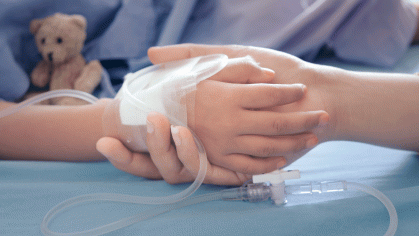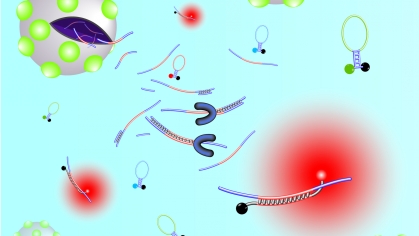Sharing COVID-19 Experiences Can Increase Vaccination Rates

Hearing personal experiences with the disease is more influential to people receiving the vaccine than mandates, according to a Rutgers study
People who know someone who became ill with COVID-19 or died from the disease are twice as likely to receive a COVID-19 vaccine, according to a study led by Rutgers and Penn State University.
The study, published in the journal Vaccine, examined whether knowing about a friend’s or family member’s illness or death from COVID-19 prompted people to get vaccinated shortly after the Food and Drug Administration’s emergency-use authorization (EUA) for Pfizer BioNTech and Moderna mRNA vaccines.
Researchers surveyed 1,193 people who were eligible for the vaccine from April 7 to April 12, 2021 to see who knew family members or friends who had recovered, were still sick or had died from COVID-19 and had received at least one dose of the vaccine.
Researchers found that essential workers and people with good or better health status were more likely to have received an initial vaccine dose within four months of the EUA as were respondents who were older, had a higher income or a higher education level. Conversely, people who were uninsured, Alaskan natives or American Indians were significantly less likely to receive the vaccine within four months of the EUA.
“This study shows that the messenger matters more than the message: Hearing about the experiences of a trusted person, such as a friend or a family member, can be more effective than vaccine mandates,” said Saurabh Kalra, a doctoral student at the Rutgers School of Public Health and lead author of the study. “A corollary to this finding is that an influential public figure whom people admire and trust can adversely impact public health if they share misinformation such as the disease is harmless or the vaccines are harmful or unnecessary.”
“These findings should encourage people to share stories about their COVID-19 illness and bereavement experiences with their friends and family as well as through social media as it may motivate people to be vaccinated,” said co-author Irina Grafova, health economist at Rutgers School of Public Health. “It also can help public health professionals design educational strategies to improve calls to action for vaccination.”
The findings highlight the need for focused efforts to increase vaccinations in younger adults, those with lower education and residing in lower-income households — the populations that were less likely to be vaccinated within four months of the EUA.
“Most health behaviors, including exercise, smoking and drug use are subject to peer influence, so it is not surprising that vaccine use is also socially patterned. We need to stop acting like people rationally make vaccine decisions by themselves based on a careful weighting of the evidence,” said Paul Duberstein, chair and professor in the department of health behavior, society and policy at Rutgers School of Public Health and co-author of the study.
Other authors included Julia Sass Rubin, Alan Monheit, Joel Cantor and Soumitra S. Bhuyan at Rutgers and Deepak Kalra at Penn State.



